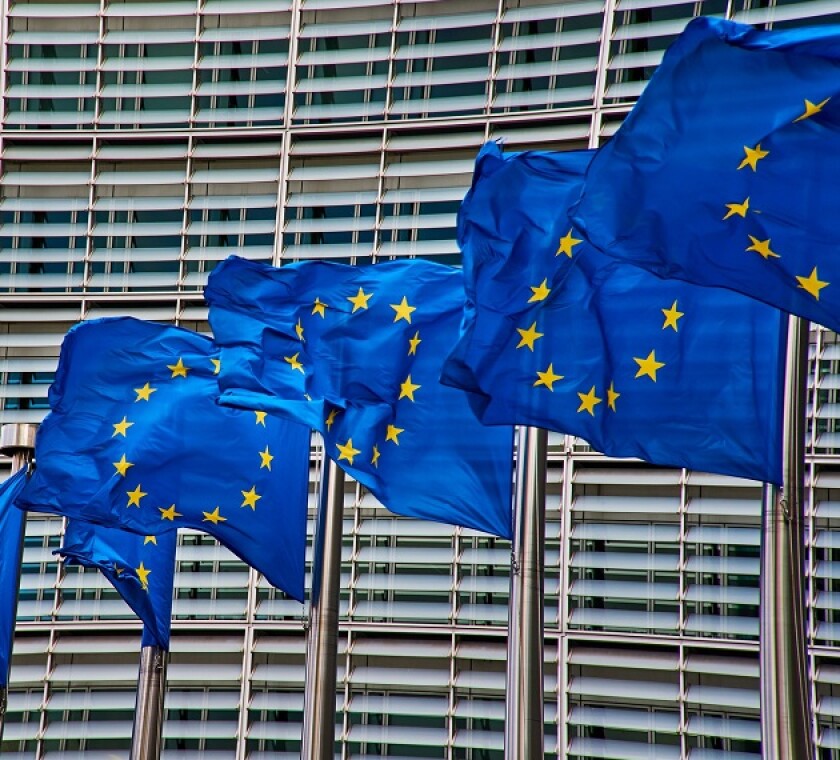The European Commission is committed to imposing a minimum rate across the EU, but not every member state is on board. Finance ministers from Estonia, Malta, Poland, and Sweden withheld their support for the draft directive.
EU finance ministers discussed the proposal at the Economic and Financial Affairs Council (Ecofin) meeting on March 15.
“It is too early to agree on a general approach on the directive,” said Mikael Damberg, Sweden’s finance minister. Damberg stressed that not all technicalities have been settled.
All EU member states signed up to the OECD two-pillar solution on tax in October 2021. The Commission drew up its proposal for implementing pillar two soon after. The sudden lack of unanimity is a serious hurdle for EU tax reform.
The French presidency of the EU Council of ministers is determined to find a solution. The French government has long been one of the most determined supporters of digital tax reform. However, the French presidency lasts only until June 2022, so time is running out.
Nevertheless, French finance minister Bruno Le Maire hopes to secure an agreement by the next Ecofin meeting on April 5.
“We are working on formulations, no formulation is insurmountable,” said Le Maire. “I have learnt patience… If it takes three weeks more, it doesn’t matter.”
This week, ITR also highlighted the tax impact of the Russia-Ukraine war:
Businesses face greater uncertainty over benchmark data following the Russia-Ukraine war
Tensions escalate over sanctions relating to the Russia-Ukraine war
Russian aggression offers several tax lessons for governments
Businesses face greater uncertainty over benchmark data following the Russia-Ukraine war
Tax directors must assess the impact of the Russia-Ukraine war on their transfer pricing (TP) policies as the fallout increases uncertainty over benchmark data and raises costs for businesses.
Businesses may have to restructure operations, review contracts, and reconsider TP policies in response to the Russia-Ukraine war. However, benchmarking and comparables are fundamental to forward planning, but there is a lack of data for such planning.
Any significant supply chain disruption means additional costs for MNEs and the TP team will have to consider how to allocate those costs.
“Most tax OECD guidance will always require an MNE to look to what would happen on an arm’s length – which then involves reviewing contracts, documentation and so on and in particular what happens in the event of force majeure – which I assume a war would be,” said Laurence Field, partner at Crowe UK.
Businesses will struggle to find the data to benchmark their activities until the dust settles. When profit margins and costs are dynamic, it could be difficult to benchmark, particularly after two years of pandemic and the economic context.
“Benchmarking operations are no longer straightforward as they used to be. There’s some detailed thinking that needs to be done here,” said Field.
Sanctions against the Russian government have made the global supply chain crisis even worse. The rollercoaster of commodity prices generated by the invasion of Ukraine means TP teams have to assess how the additional costs will impact their pricing.
Russian aggression offers several tax lessons for governments
Russia’s invasion in Ukraine has expedited some international tax developments including regulations on digital assets and beneficial ownership, as well as revisions on environmental tax incentives.
Politicians are reigniting calls for beneficial ownership registries to identify potential Russian ties in shell companies across several countries. The EU, US, UK, Switzerland, and other major governments could increase sanctions on Russian groups and individuals in coming months as a result of more tax transparency.
“FinCEN is taking aggressive aim at those who would exploit anonymous shell corporations, front companies, and other loopholes to launder the proceeds of crimes, such as corruption, drug and arms trafficking, or terrorist financing,” said Himamauli Das, acting director of the US Treasury Department’s Financial Crimes Enforcement Network (FinCEN).
Additionally, the concept of beneficial ownership is a key part of provisions in tax treaties for multinational enterprises (MNEs) to avail benefits, and companies have even restructured because of it.
The UN Model Double Taxation Convention and OECD commentary on tax treaties both advocate for beneficial ownership tests to determine whether MNEs should have access to treaty benefits, including exemptions on withholding taxes.
“Beneficial ownership cases changed how several companies consider the substance of their holding structures,” said Richard Taylor-Whiteway, head of tax at the insurance provider Brockwell Capital.
“We are regularly asked to consider insuring against withholding taxes and denied interest deductions that cannot be matched against income,” he added.
The consequences of failing beneficial ownership tests include denial of residency certificates, the application of directives, and no support for mutual agreement procedures under double tax treaties.
Next week in ITR
ITR will be revisiting Mexican tax reform to investigate the implications on TP arrangements. The tax reform will increase the tax and administrative burden on TP and tax compliance teams, particularly when it comes to advance pricing agreements (APAs).
At the same time, ITR will be following e-invoicing trends in indirect tax policy. One such trend, the rise of QR codes, could help to solve the problem of data quality in VAT compliance systems.
Meanwhile, UK Chancellor Rishi Sunak will make his spring budget statement on March 23. Sunak may be set to announce corporate tax reform to bolster capital investment and productivity in the UK economy.
Readers can expect these stories and plenty more next week. Don’t miss out on the key developments. Sign up for a free trial to ITR.













